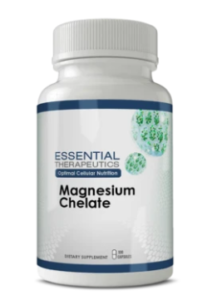Omega-3 Fatty Acids and Depression
A deficiency of omega-3 fatty acids has been associated with conditions as diverse as hostility, cognitive decline with aging, and attention-deficit / hyperactivity disorder.
Polyunsaturated fatty acids (PUFAs) are found in corn oil, primrose oil, flaxseed oil, borage oil, certain fish, and sesame, sunflower, safflower, and wheat germ oil. PUFAs are liquid at room temperature. They have many bends in their chains and are quite flexible. Although a person needs all types of fat, PUFAs are generally considered the healthiest.
PUFAs are further divided into two families of essential fatty acids (EFAs): omega-6 and omega-3
 The omega-3 family can be found in some nuts, meats, and especially in deep cold-water fish. It’s also in flax seed, soy- bean, walnut, and chestnut oils, as well as some dark-green leafy vegetables.
The omega-3 family can be found in some nuts, meats, and especially in deep cold-water fish. It’s also in flax seed, soy- bean, walnut, and chestnut oils, as well as some dark-green leafy vegetables.
Essential fatty acids are, as their name implies, essential for our existence, but our body can’t make them. We have to take them in by food. We can’t live without them, because they make up the outer membranes of each cell.
Several studies have demonstrated that people suffering from major depression are measurably deficient in omega-3 fatty acids.
From an epidemiological viewpoint, cultures marked by abundant fish consumption and omega-3 intake, such as Eskimos and some of the coastal natives of Japan and Canada, are far less likely to suffer from depression than Americans. Conversely, cultures consuming less fish than Americans, such as New Zealanders, suffer substantially higher rates of depression.
When fish oil is given to people suffering from depression, mood is substantially improved. A small, placebo-controlled trial conducted by Lauren Marangell, MD, chief of psychopharmacology at the Baylor College of Medicine, demonstrated improved mood in depressed persons following six weeks of treatment with 2 grams per day of DHA in a trial of 36 patients.
In another study, Andrew Stoll, MD, of Harvard examined 30 patients suffering from difficult-to-treat bipolar disorder (manic depression). Daily consumption of 6.2 grams of EPA and 3.4 grams of DHA resulted in objective improvement in depression scores and longer periods of remission between relapses.
An Israeli study of 20 patients with major depression who were receiving maintenance antidepressant pharmaceutical therapy showed that mood markedly improved after only three weeks of EPA supplementation when compared to placebo.
Dr. Malcolm Peet, head of the Omega-3 Mental Health Research Group at the University of Sheffield (England), reported a study of 70 patients on conventional antidepressant therapy. In this trial, dramatic improvement in measures of depression was seen when 1 gram of EPA per day was added to the treatment regimen.
 How Much Fish Oil Should I Take?
How Much Fish Oil Should I Take?
Most fish oil capsules contain 300 mg of total omega-3 fatty acids in each 1000-mg capsule. A common proportion is 180 mg of EPA and 120 mg of DHA, for a total of 300 mg in each 1000-mg capsule.
If you suffer an unpleasant aftertaste after consuming fish oil capsules, try refrigerating the capsules, as this usually eliminates that effect. Fish oil is also best taken with meals to minimize the occasional stomach upset some people experience.
>> Essential Therapeutics Omega-3 Fish Oil

Every human being is the author of his own health or disease.
– The Buddha
Essential Fatty Acids (EPAs) and Pregnancy
 EPAs (omega-3) are important to both mommy and baby during pregnancy. We know that low EPA levels can cause depression, and pregnancy draws severely on a person’s store of EPAs. (This could explain many of the cases of postpartum depression.) A University of Minnesota study shows that omega-3 fats decreased in a woman’s blood during pregnancy, and they stayed decreased for six weeks after birth. Subsequent pregnancies made the deficiency even worse.
EPAs (omega-3) are important to both mommy and baby during pregnancy. We know that low EPA levels can cause depression, and pregnancy draws severely on a person’s store of EPAs. (This could explain many of the cases of postpartum depression.) A University of Minnesota study shows that omega-3 fats decreased in a woman’s blood during pregnancy, and they stayed decreased for six weeks after birth. Subsequent pregnancies made the deficiency even worse.
The study also demonstrates the importance of omega-3 fats for fetal development. EPA is so important that the mother’s brain shrinks three percent in order to provide enough fuel for fetal development.
Quoting the study’s authors, “Long chain fatty acid deficiency at any stage of fetal and/or infant development can result in irreversible failure to accomplish specific brain growth.”
If you are pregnant, consider taking EPA (fish oil) supplements. Diaper rash, eczema, and cradle cap are also all associated with a deficiency in EFAs in children, so make sure your children receive plenty of good fats in their diets. And seriously consider breastfeeding, which is an excellent source of EFAs for your infant.
Click here to read more about or to order our fish oil supplements
The Health Benefits of Regular Exercise


People who take regular exercise could reduce their risk of developing around two dozen physical and mental health conditions — including some cancers and dementia — and slow down how quickly their body deteriorates as they age.
An extensive research review, published in the December issue of IJCP, the International Journal of Clinical Practice, says that apart from not smoking, being physically active is the most powerful lifestyle choice any individual can make to improve their health.
Physiotherapist and lecturer Leslie Alford from the University of East Anglia reviewed 40 papers covering the latest international research published between 2006 and 2010.
Health benefits identified by the review include:
1) Regular moderate to intense physical activity is associated with decreased risk of coronary heart disease and ischaemic and haemorrhagic stroke.
2) A growing body of evidence suggests that increasing physical activity can also reduce the risk of certain types of cancers, osteoporosis, type 2 diabetes, depression, obesity and high blood pressure.
3) Evidence of the beneficial effects of physical activity in the primary prevention and management of cancer is growing and there is an association between higher levels of physical activity and lower cancer death rates.
4) Research has found that walking or cycling for at least an half-an-hour a day is associated with a reduction in cancer and that when this is increased to an hour cancer incidence falls by 16 per cent.
5) Research has shown a strong relationship between increased physical activity and reduced colon cancer in both sexes. And men who are more active at work — not just sitting at a desk — have lower rates of prostate cancer.
6) Other cancer studies show that physical activity after diagnosis can aid recovery and improve outcomes.
7) Studies have also shown that men who are physically active are less likely to experience erection problems.

Recommendations identified by the review include:
1) Healthy adults aged between 18 and 65 should aim for 150 minutes of moderate intensity physical activity a week, such as 30 minutes of brisk walking, five days a week. And people who undertake more vigorous intensity exercise, such as jogging, should aim for 20 minutes three days a week.
2) Healthy adults should aim for two strength-training sessions a week that work with the body’s major muscle groups.
3) Older people can benefit from exercise that helps to maintain their balance and flexibility.
4) People who are physically active should continue to exercise even when they become middle aged or elderly and those who aren’t should increase their physical activity.
You Get What You Want In Life
 “A son and his father were walking on the mountains. Suddenly, his son falls, hurts himself and screams: “AAAhhhhhhhhhhh!!!”
“A son and his father were walking on the mountains. Suddenly, his son falls, hurts himself and screams: “AAAhhhhhhhhhhh!!!”
To his surprise, he hears the voice repeating, somewhere in the mountain: “AAAhhhhhhhhhhh!!!”
Curious, he yells: “Who are you? “He receives the answer: “Who are you?” And then he screams to the mountain: “I admire you!” The voice answers: “I admire you!” Angered at the response, he screams: “Coward!” He receives the answer: “Coward!”
He looks to his father and asks: “What’s going on?” The father smiles and says: “My son, pay attention.” Again the man screams: “You are a champion!” The voice answers: “You are a champion!” The boy is surprised, but does not understand.
Then the father explains: “People call this ECHO, but really this is LIFE. It gives you back everything you say or do. Our life is simply a reflection of our actions. If you want more love in the world, create more love in your heart.
If you want more competence in your team, improve your competence. This relationship applies to everything, in all aspects of life; Life will give you back everything you have given to it.”
YOUR LIFE IS NOT A COINCIDENCE. IT’S A REFLECTION OF YOU!
Magnesium and Your Health
 Magnesium is one of the most important minerals in the body. It is responsible for proper enzyme activity and transmission of muscle and nerve impulses, and it aids in maintaining a proper pH balance. It helps metabolize carbohydrates, proteins, and fats into energy. Magnesium also helps synthesize the genetic material in cells and helps to remove toxic substances, such as aluminum and ammonia, from the body. Magnesium and calcium help keep the heart beating; magnesium relaxes the heart, and calcium activates it. A deficiency of magnesium, then, may increase the risk of heart disease.
Magnesium is one of the most important minerals in the body. It is responsible for proper enzyme activity and transmission of muscle and nerve impulses, and it aids in maintaining a proper pH balance. It helps metabolize carbohydrates, proteins, and fats into energy. Magnesium also helps synthesize the genetic material in cells and helps to remove toxic substances, such as aluminum and ammonia, from the body. Magnesium and calcium help keep the heart beating; magnesium relaxes the heart, and calcium activates it. A deficiency of magnesium, then, may increase the risk of heart disease.
Magnesium also plays a significant role in regulating the neurotransmitters. A deficiency can cause muscle pain, joint pain, headache, fatigue, depression, leg cramps, high blood pressure, heart disease and arrhythmia, constipation, irritable bowel syndrome, insomnia, hair loss, confusion, personality disorders, swollen gums, and loss of appetite. High intake of calcium may reduce magnesium absorption. Simple sugars and/or stress can deplete magnesium.
Magnesium is a natural sedative and can be used to treat muscle spasm, anxiety, depression, insomnia, and constipation. It is also a potent antidepressant. It helps with intermittent claudication, a condition caused by a restriction of blood flow to the legs. It’s effective in relieving some of the symptoms associated with PMS, and women suffering from PMS are usually deficient in it.
New studies are validating what many nutrition-oriented physicians have known for years: a magnesium deficiency can trigger migraine headaches. Magnesium also helps relax constricted bronchial tubes associated with asthma.
Unfortunately, dietary magnesium intake in this country is steadily declining. It has been consistently depleted in our soils and further depleted in plants by the use of potassium and phosphorus containing fertilizers, which reduce a plant’s ability to uptake magnesium. Food processing also removes magnesium, while high-carbohydrate and high-fat diets increase the body’s need for it. Diuretic medications further deplete total body magnesium.
It is estimated that up to 60-80% of the U.S. population is deficient in magnesium. Normal dosage is 500 mg daily. Toxicity: Too much magnesium can cause loose bowel movements. If this occurs, reduce your dose.

